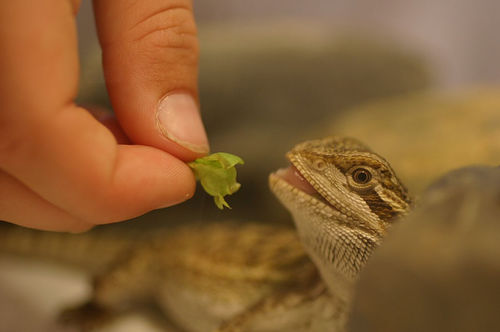The Ultimate Guide to Bearded Dragon Periodontal Disease: Symptoms, Treatment, and Prevention
Introduction
Bearded dragons are fascinating reptiles that make great pets. These docile creatures are known for their distinctive appearance, friendly disposition, and unique behaviors. While they are generally fairly easy to care for, bearded dragons can develop a variety of health issues, including periodontal disease.

What is Bearded Dragon Periodontal Disease?
Periodontal disease is a common dental condition that affects many different species, including humans and animals. Also known as gum disease, periodontitis occurs when bacteria in the mouth form plaque and tartar on the teeth and gums. Over time, this can lead to inflammation, infection, and even tooth loss. In bearded dragons, periodontal disease can be particularly challenging to treat, and it is important to catch it early to prevent it from progressing.
Symptoms of Bearded Dragon Periodontal Disease
Bearded dragon periodontal disease can cause a variety of symptoms, some of which may be easy to identify and others which may require a trained eye. Some of the most common signs of periodontal disease in bearded dragons include:
- Red, swollen, or bleeding gums
- Pus or discharge around the gums
- Loose teeth or tooth loss
- Difficulty eating or loss of appetite
- Foul breath or odor around the mouth
- Swelling or visible lesions in the mouth or on the face

If you notice any of these symptoms in your bearded dragon, it is important to get them evaluated by a veterinarian as soon as possible. While periodontal disease can be challenging to treat, catching it early can significantly improve your pet’s prognosis.
Causes of Bearded Dragon Periodontal Disease
There are several factors that can contribute to the development of periodontal disease in bearded dragons. Some of the most common causes of this condition include:
- Poor dental hygiene
- Injury or trauma to the mouth
- Genetic predisposition
- Poor diet or nutrition
- Weakened immune system
- Overgrowth of bacteria in the mouth

While some of these factors may be unavoidable, there are steps you can take to reduce your bearded dragon’s risk of developing periodontal disease. Maintaining good dental hygiene, providing a balanced and nutritious diet, and seeking prompt veterinary care when issues arise can all help protect your pet’s oral health.
Treatment for Bearded Dragon Periodontal Disease
Treatment for periodontal disease in bearded dragons will depend on the severity and extent of the condition. In some cases, it may be possible to treat the disease with antibiotics and a thorough cleaning or scaling of the teeth and gums. In more advanced cases, tooth extraction or even surgery may be necessary.
If your bearded dragon is diagnosed with periodontal disease, your veterinarian will work with you to develop a treatment plan that is tailored to your pet’s needs. It is important to follow through with all recommended treatments to ensure the best possible outcome for your pet.
Preventing Bearded Dragon Periodontal Disease
Preventing periodontal disease in bearded dragons is much easier than treating it once it has taken hold. Some key steps you can take to protect your pet’s oral health include:
- Providing proper dental hygiene, including regular brushing or wiping of the teeth and gums
- Offering a balanced and nutritious diet that is high in calcium and vitamin D3
- Offering toys and objects that encourage chewing and help to clean the teeth
- Providing regular veterinary care, including dental cleanings and check-ups
- Monitoring your pet’s behavior and appetite for any signs of oral issues

By taking these steps, you can help ensure that your bearded dragon stays healthy and happy for years to come. If you suspect that your pet may be suffering from periodontal disease, don’t hesitate to seek veterinary care. With prompt and appropriate treatment, you can help your pet overcome this challenging condition and enjoy a long and healthy life.
